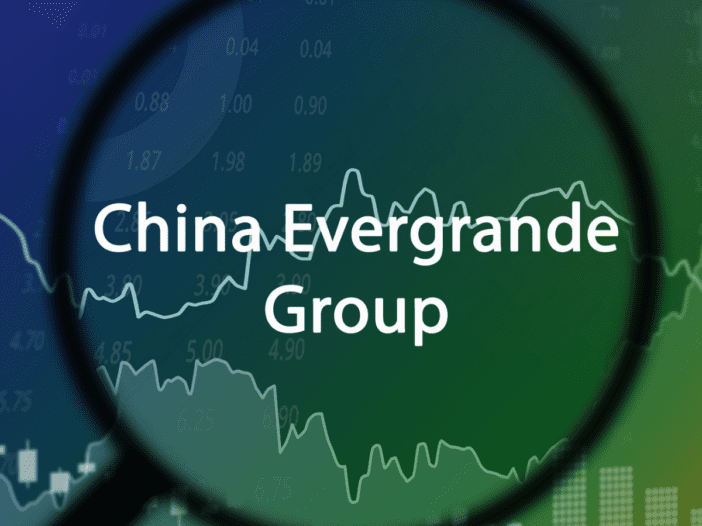While inflation may not be much of a problem, asset bubbles (especially in stocks) definitely are. A collapse in inflated stock prices may now be underway, partly due to global liquidity concerns surrounding the impending insolvency of Evergrande in China and a shortage of high-quality collateral in the Eurodollar markets.
Stocks have reached new highs in many markets, especially in the US. However, these high levels are based on exaggerated expectations of future growth. In fact, the economy of the US is slowing rapidly, and the slowdown is even more clear in China.
Europe was already struggling, and Australia will experience slower growth because of what’s happening in China. Stocks are overpriced based on many measures including the ratio of stock prices to GDP, multiples of earnings, the Shiller CAPE ratio, and low dividend yields. This combination of overvalued stocks and a slowing economy will result in a serious correction in stock prices in the months ahead.
Residential real estate should remain strong because people are moving out of cities to avoid the crime, density, and exposure to COVID. However, residential real estate will suffer in China because of the partial liquidation of Evergrande, the largest property developer and lender in China, as explained below.
A global bank contagion
We’ve long advised readers that the Chinese wealth management product (WMP) system is the greatest Ponzi in the history of the world. WMPs are sold by banks to retail investors. They are technically pass-through notes structured as units in a pool. In US terms, they are something like a hybrid between commercial paper and ETFs.
The problem is that retail investors are led to believe that WMPs are like bank deposits and are backed by the bank that sells them. They’re not. They’re actually unsecured units in blind pools that can be invested in anything the pool manager wants.
Most WMP funds have been invested in the real estate sector. This has led to asset bubbles in real estate (at best) and wasted developments that cannot cover their costs (at worst). When investors wanted their money back, the sponsor would simply sell more WMPs and use the money to pay back the redeeming investors. That’s what gave the product its Ponzi characteristic.
The total amount invested in WMPs is now in the trillions of dollars used to finance thousands of projects sponsored by hundreds of major developers. Chinese investors are all in with WMPs.
Now, the entire edifice is collapsing as we predicted it would. The largest property developer in China, Evergrande, is quickly headed for bankruptcy. That’s a multibillion-dollar fiasco on its own. Evergrande losses will arise in WMPs, corporate debt, unpaid contractor bills, equity markets, and unfinished housing projects.
What about the bailout?
The Wall Street Journal reported on China’s plans for dealing with Evergrande on 23 September as follows:
‘Chinese authorities are asking local governments to prepare for the potential downfall of China Evergrande Group, according to officials familiar with the discussions, signaling a reluctance to bail out the debt-saddled property developer while bracing for any economic and social fallout from the company’s travails.
‘The officials characterized the actions being ordered as “getting ready for the possible storm,” saying that local-level government agencies and state-owned enterprises have been instructed to step in to handle the aftermath only at the last minute should Evergrande fail to manage its affairs in an orderly fashion…
‘Local governments have been ordered to assemble groups of accountants and legal experts to examine the finances around Evergrande’s operations in their respective regions, talk to local state-owned and private property developers to prepare to take over local real-estate projects and set up law-enforcement teams to monitor public anger and so-called “mass incidents,” a euphemism for protests, according to the people.’
This is the worst possible playbook for managing a financial crisis. The response to a financial crisis has to be centralised so that decisions about how to deploy limited resources can be made rapidly. Some lenders must be saved; some should be allowed to fail.
Retail investors in WMPs should get some kind of relief if only to avoid social unrest. Equity holders should be wiped out. Foreign investors in dollar-denominated debt of Evergrande will be left to fend for themselves and possibly seek relief in their home countries. The point is these types of decisions cannot be made by ‘local-level government agencies’, as proposed by the Chinese.
The government plan is not a serious effort to truncate a financial crisis. It seems designed more to suppress social unrest and perhaps arrest ‘troublemakers’. Western analysts don’t understand this dynamic because they view events through the lens of Wall Street and Washington norms.
The Communist Party of China doesn’t care if Chinese oligarchs or investors in BlackRock ETFs lose money. That suits them fine. They’re communists. This unprecedented combination of a financial crisis and communist indifference could result in full-blown contagion that will not be confined to China and could emerge as a crisis in the US and Europe within a few months.
Evergrande WMP investors are now staging protests at banks after learning that their WMPs will not pay out for two years. Of course, Evergrande will be bankrupt long before that and the investors will get nothing in the end. Chinese regulators believe they have the resources to bailout or restructure Evergrande with some haircuts for creditors.
They probably do, but that misses the point. The damage will not be confined to Evergrande. It will spread quickly to counterparties of Evergrande including other developers and banks. A run on all WMPs will begin.
When a Ponzi starts collapsing, no one wants to be the last one out. Everyone wants his or her money back right away. Chinese regulators are so desperate that they are trying to pay off WMP holders in kind with deeds to real estate that no one wants.
This is another fiasco in the making because investors will dump that unwanted real estate, which will collapse the property market in turn. The Chinese are only looking at what’s inside the four walls of Evergrande and are ignoring the fact that their entire property and financial system is on the verge of a world historic crack-up. We’ve predicted this all along. If you still own Chinese stocks, it’s not too late to get out of those positions. It will be soon.
All the best,
 |
Jim Rickards,
Strategist, The Daily Reckoning Australia
This content was originally published by Jim Rickards’ Strategic Intelligence Australia, a financial advisory newsletter designed to help you protect your wealth and potentially profit from unseen world events. Learn more here.

